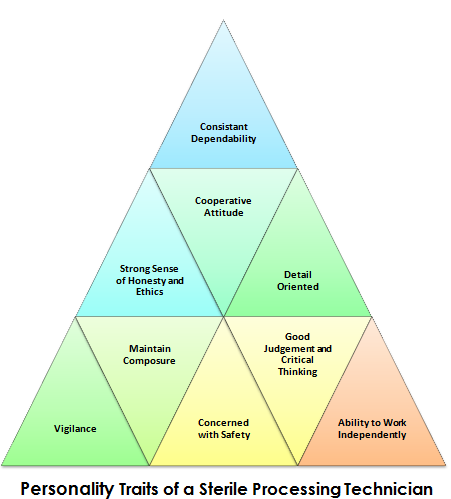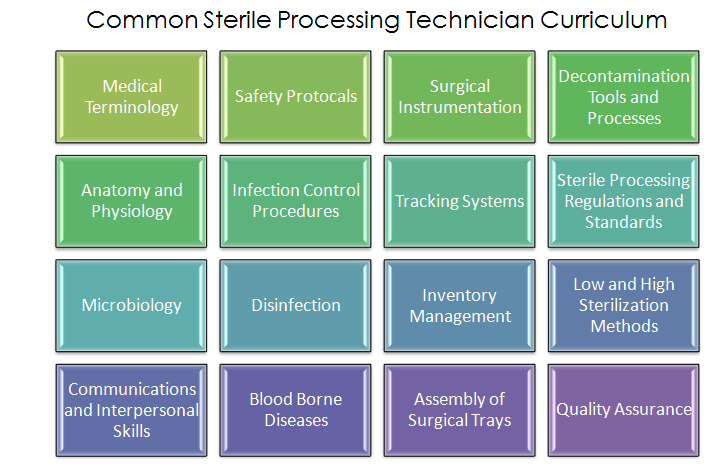How Can You Become a Sterile Processing Technician?
As an entry level position, training to become a sterile processing technician is fairly easy, especially compared to other healthcare professions. In this article we will discuss some of the ways that you can become a sterile processing technician including training and personality traits one will need to know to enter this profession.
Personality Traits of a Sterile Processing Technician
While education and experience are important, sometimes it is the actual person that makes their job a success. Like most jobs, your personality will help determine your success as a sterile processing technician. It is possible to do well in this job without a drive and passion for keeping people safe, but your chances of this are fairly slim. You need the right mindset and personality to be a great sterile processing tech. Below you will find a chart that covers some of the top traits that help make one successful in this career.
Sterile Processing Technician Training
Depending on your long range professional goals and where you live or plan to work, there are different paths in which a person can travel to become a sterile processing technician. The two main paths are on-the-job training and a formal educational training program. There are both pros and cons to each of these training paths so let’s look at them individually.
On-The-Job Training
In some areas of the country where competition for these positions are low, you may get hired by a hospital and undergo an on-the-job training program. In some of these cases, it is very possible to get hired as a sterile processing tech with just a high school diploma or the equivalent.
The positives of this training path seem fairly straightforward. You will gain real work experience and a paycheck while being trained as a sterile processing tech. This is great for those who are looking for a healthcare related profession but either do not have the resources or the desire to go through a formal educational program.
The possible negatives of the on-the-job training would be the lack of a degree or certificate. Even though experience and proven competency are important, an increasing number of medical facilities and states are adding formal training as one of the requirements. This would probably mean that you would be grandfathered in your position but it may be harder to change your place of employment.
Post-Secondary Education
If you have decided to go the more formal education route, you will find that most community colleges and vocational schools offer sterile processing technician training programs. These training programs take upwards of nine months and normally split between the classroom and a hands-on or externship to give the student some real life experience.
While the actual curricula may be different from school to school, you will cover a number of topics found in most healthcare programs such as medical terminology and ethics. Some of the more specific sterile processing technician subjects such as decontamination tools and sterilization processes will be emphasized. The chart below lists some of the topics normally covered in class.
Even though completing a formalized training program does not mean you automatically mean you have a job, it does show potential employers that you are serious about your career. With a certificate in hand, it will most likely be easier to gain employment than someone without the formal background. Another positive is the chance for a higher salary as most professions reward education since these medical facilities would not have to pay for your training.
On the negative side, you will need to spend money in order to attend one of these training programs, which can run for several thousand dollars. Not to mention the amount of time to study and attend classes meaning that it may be hard to hold a job at the same time.
What About Online Training?
Recently we’ve also seen a growing number of online schools provide the proper training program for those interested in sterile processing technician career. Online schools provide a great service to those with busy schedules who are looking to improve their station in life. Being able to set your own schedule when to attend your online class is a bonus for those with kids or a full time job. The one major down side is that you will still need to complete the laboratory section of the class to receive your certificate.
Becoming a sterile processing technician is a great way to enter the world of healthcare. The prerequisites have a low barrier as compared to other healthcare professions. The decision on which route you would like to go so far as on-the-job training or a formal training program is one you will have to make by listing your priorities of getting a job quicker or making a larger and potentially more lucrative commitment to your career.


